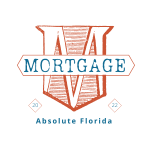Conventional loans are a widely chosen option for homebuyers in Florida, backed by Fannie Mae and Freddie Mac. These loans offer a range of options to meet different needs, such as fixed-rate loans with consistent payments over 10 to 30 years. They are suitable for primary residences, second homes, or investment properties, including single-family homes, condos, and multi-family properties. Additionally, there are high balance loans available with various loan-to-value ratios and mortgage insurance options. Another option is the conventional adjustable rate mortgage, which provides lower initial rates and payments.
Types of Conventional Loans
In the context of conventional loans, there are various types available, including fixed-rate loans, adjustable rate mortgages (ARMs), and high balance loans, each with their own features and suitability depending on the borrower’s needs and preferences. Fixed-rate loans offer a consistent payment throughout the loan term, providing security with no increase in mortgage payment. On the other hand, ARMs initially offer lower rates and monthly payments, but the interest rates can go up or down after the initial rate term expires. ARMs are preferred by those planning to sell or refinance within 3-7 years, while fixed-rate loans are preferred for long-term security. Additionally, high balance loans with a 95% loan-to-value ratio are available for borrowers seeking larger loan amounts. Overall, conventional loans provide benefits such as low rates, low fees, and fast closings, making them a popular choice for borrowers in Florida.
Fixed Rate vs. Adjustable Rate
The comparison between fixed rate and adjustable rate mortgages highlights the differences in payment consistency and interest rate fluctuations. Fixed rate mortgages offer the advantage of consistent monthly payments throughout the loan term, providing borrowers with security and predictability. This type of loan is ideal for those seeking long-term stability and protection against potential interest rate increases. On the other hand, adjustable rate mortgages (ARMs) offer lower initial interest rates and monthly payments, making them attractive for short-term homeownership plans or those planning to sell or refinance within a few years. However, ARMs come with the risk of interest rate adjustments after the initial rate term expires, potentially leading to higher monthly payments. Overall, the choice between fixed rate and adjustable rate mortgages depends on individual financial goals and preferences.
Loan Limits and Application Process
Florida has specific loan limits for conforming mortgages, which vary depending on the year and location. As of 2022, the maximum loan amount for conventional conforming loans in Florida is $647,200. These loan limits are set by Fannie Mae and Freddie Mac, the government-sponsored enterprises that back conventional loans. It’s important to note that loan limits can change annually, so it’s essential to stay updated on the latest guidelines. In addition to loan limits, there are also documentation requirements for conventional loan applications in Florida. Borrowers will typically need to provide proof of income, employment history, credit history, and assets. The specific documentation required may vary depending on the lender and the borrower’s individual circumstances.
Frequently Asked Questions
What are the eligibility requirements for obtaining a conventional loan in Florida?
The eligibility requirements for obtaining a conventional loan in Florida include meeting income requirements and providing the necessary documentation. Income requirements vary depending on the lender and loan program. Documentation typically includes proof of income, employment history, credit history, and assets.
Can I use a conventional loan to finance a vacation home or investment property?
Yes, conventional loans can be used to finance vacation homes or investment properties. Conventional loans offer a variety of financing options and loan terms, making them suitable for primary, second home, or investment properties.
What is the minimum credit score required to qualify for a conventional loan?
The minimum credit score required to qualify for a conventional loan varies depending on the lender and other qualifying criteria. Generally, a credit score of 620 or higher is preferred, but some lenders may require a higher score.
Are there any down payment assistance programs available for conventional loans in Florida?
Down payment assistance programs in Florida provide financial support to eligible borrowers. Eligibility criteria may include income requirements, property types, and credit score. The loan processing timeline and closing process vary depending on the program chosen.
How long does it typically take to process and close a conventional loan in Florida?
Typical processing time for a conventional loan in Florida can range from 30 to 45 days. Common challenges in the loan process include documentation requirements, appraisal issues, and potential delays in underwriting and closing.
